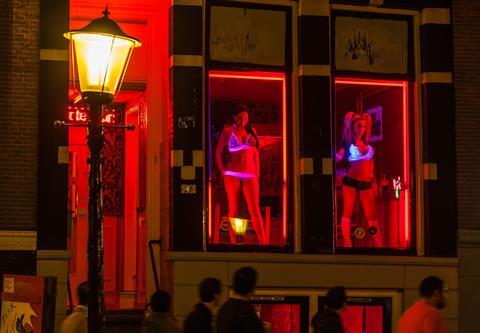‘It would be nice to think that we can separate trafficking from ‘normal’ prostitution, but that’s a comforting fiction,’ says Karen Murdarasi.

Sally Hope argues that Christians should not be worried about the decriminalisation of “sex work” (a euphemism for both prostitution and pimping), but instead should defer to experts. As someone who is a trustee of an anti-human trafficking charity and who has worked with many victims of sex trafficking as an interpreter, perhaps I could offer my expertise.
It would be nice to think that we can separate trafficking from ‘normal’ prostitution, but that’s a comforting fiction. Almost no one working as a prostitute is in that situation by choice. It’s estimated that as few as two percent of people selling sex made a free choice about their career. The remaining 98 percent are made up of trafficking victims and women who have been forced into prostitution by poverty, crisis, homelessness, a coercive partner, or a combination of those factors.
It’s estimated that as few as two percent of people selling sex made a free choice about their career.
After all, why would anyone with a choice about it choose to sell sex to strangers? Would you? On top of the sexual and physical health dangers inherent in the ‘work’, violence is inextricably linked to prostitution. It’s extremely dangerous, and that’s true whether it’s legal or not. In Germany, where prostitution is decriminalised, there have been 99 murders and 60 attempted murders of prostitutes between 2000 and 2020, to say nothing of other physical attacks by clients. In what other case would we propose decriminalising harm against people who are overwhelmingly unwilling victims? Forced marriage? Child soldiers? FGM? Why is prostitution different?
In my work as an Albanian interpreter, I have interpreted for individuals and groups as they receive therapy to deal with post-traumatic stress disorder caused by being trafficked and sexually exploited.
In my work as an Albanian interpreter, I have interpreted for individuals and groups as they receive therapy to deal with post-traumatic stress disorder caused by being trafficked and sexually exploited. Pretty much all sex trafficking victims suffer from mental health problems, but it is not just trafficked women who experience PTSD; in fact, around 70 percent of women in prostitution suffer from PTSD. That’s higher than the rate of PTSD among combat veterans!
The horrible situation these women find themselves in is made worse by the fact that usually they are extremely vulnerable to start with and have already been abused. Around half of women in prostitution were sexually abused as children, and close to 90% were physically abused. Between a third and half have spend time in care, and many enter prostitution while they are still children. Many have drug problems. Many are afraid to leave the ‘profession’ because of violent repercussions from their partner or pimp. This is not a normal work situation, and we shouldn’t treat it like one.
Read more on trafficking and prostitution:
Reaching out to women in prostitution
Sally Hope’s article was coming from a place of concern and respect for women in prostitution, and I share those feelings, but full decriminalisation is not the best way to help. At Restore Glasgow, we have combined our voice with other Christian organisations to support the Nordic Model (also known as the End Demand Model). This is a system that was initially trialled in Sweden and Norway, where the sale of sex is totally decriminalised, but the purchase of sex is not.
This means that women in prostitution do not need to fear the police if they report crimes against themselves, but men do need to fear the consequences when they seek to exploit these women. In these countries, not only was there a reduction in prostitution, there was also a reduction in sex trafficking, because demand for prostitutes drives sex trafficking, making it lucrative for the traffickers. The Nordic Model works best when it is combined with targeted help to create routes out of prostitution and even the deletion of previous convictions for soliciting, to reduce stigma and barriers to employment.
It is crucial, as Sally says, that we care more about the welfare of prostituted women than about tut-tutting over the morality of it, but we must do more to help them out of a violent, dangerous lifestyle that almost none of them chose. Gisèle Pelicot, the brave multiple-rape survivor, famously said that shame must change sides. In the case of prostitution, too, shame, blame and criminal consequences must change sides if we are to help our sisters walk free.
































No comments yet